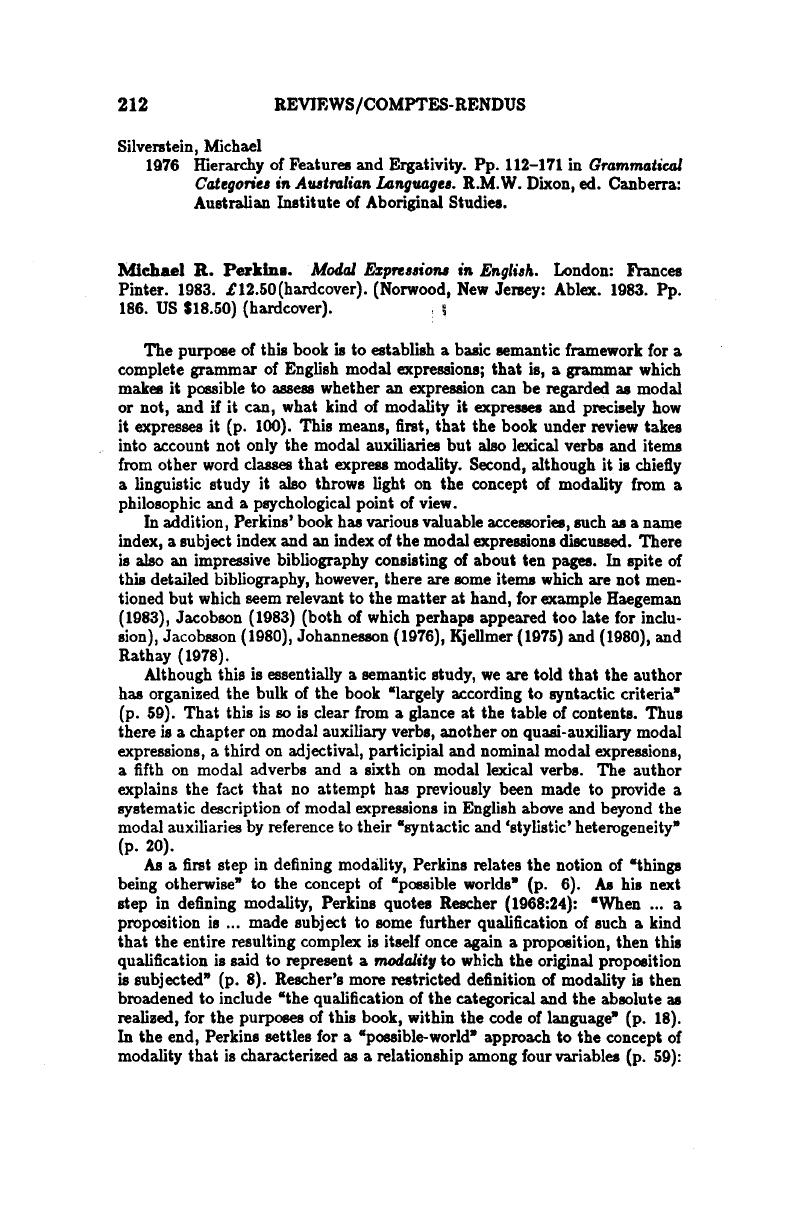No CrossRef data available.
Article contents
Michael R. Perkins. Modal Expressions in English. London: Frances Pinter. 1983. £12.50(hardcover). (Norwood, New Jersey: Ablex. 1983. Pp. 186. US $18.50) (hardcover).
Published online by Cambridge University Press: 27 June 2016
Abstract
An abstract is not available for this content so a preview has been provided. Please use the Get access link above for information on how to access this content.

- Type
- Reviews/Comptes-Rendus
- Information
- Canadian Journal of Linguistics/Revue canadienne de linguistique , Volume 30 , Issue 2 , Summer 1985 , pp. 212 - 217
- Copyright
- Copyright © Canadian Linguistic Association 1985
References
Bouma, L.
1975
On Contrasting the Semantics of the Modal Auxiliaries of German and English. Lingua
37:313–339.CrossRefGoogle Scholar
Haegeman, L.
1983
The Semantics of ‘Will’ in Present-Day British English. A Unified Account. Brussels: Paleis der Academiën.Google Scholar
Huddleston, R.
1971
The Sentence in Written English. A Syntactic Study Based on an Analysis of Scientific Texts. Cambridge: Cambridge University Press.Google Scholar
Jacobson, S.
1983
Modality Nouns and the Choice Between to-infinitive and of + ing
. Studia Anglica Posnaniensia
15:61–71.Google Scholar
Jacobsson, B.
1980
On the Syntax and Semantics of the Modal Auxiliary had better
. Studia Neophilologica
52:47–53.CrossRefGoogle Scholar
Johannesson, N.-L.
1976
The English Modal Auxiliaries. A Stratificational Account. Stockholm Studies in English
36. Stockholm: Almqvist and Wiksell International.Google Scholar
Joos, M.
1964
The English Verb: Form and Meanings. Madison: University of Wisconsin Press.Google Scholar
Kjellmer, G.
1975
Are Relative Infinitives Modal?
Studia Neophilologica
47:323–332.CrossRefGoogle Scholar
Kjellmer, G.
1980
“There is no hiding you in the house”: On a Modal Use of the English Gerund. English Studies
61:47–60.CrossRefGoogle Scholar
Rathay, W.
1978
Some Aspects of Modality as Seen from a Semantic Point of View. Studia Anglica Posnaniensia
10:105–122.Google Scholar


